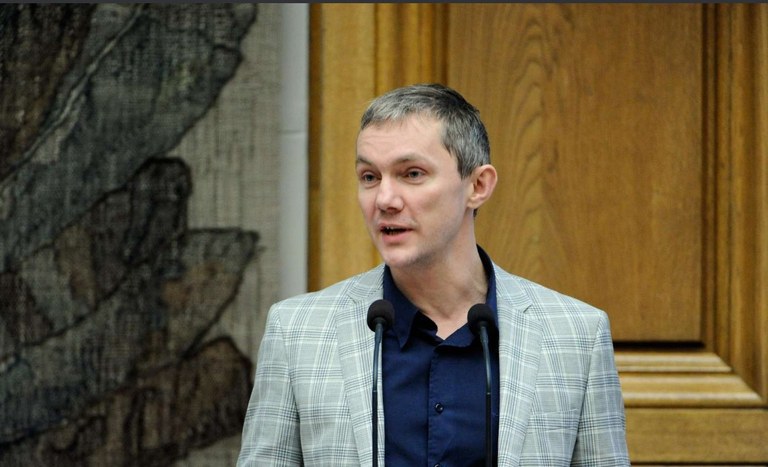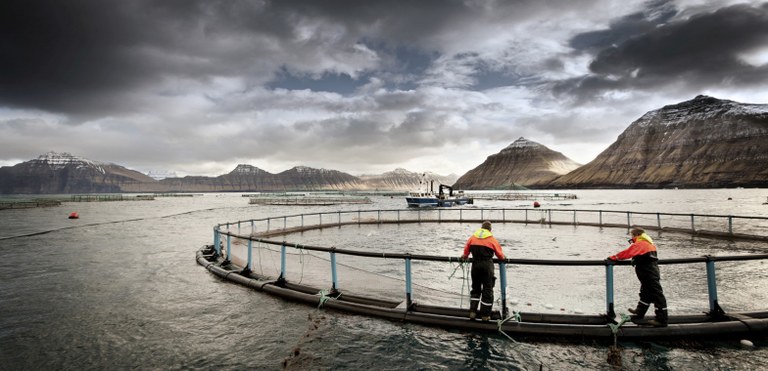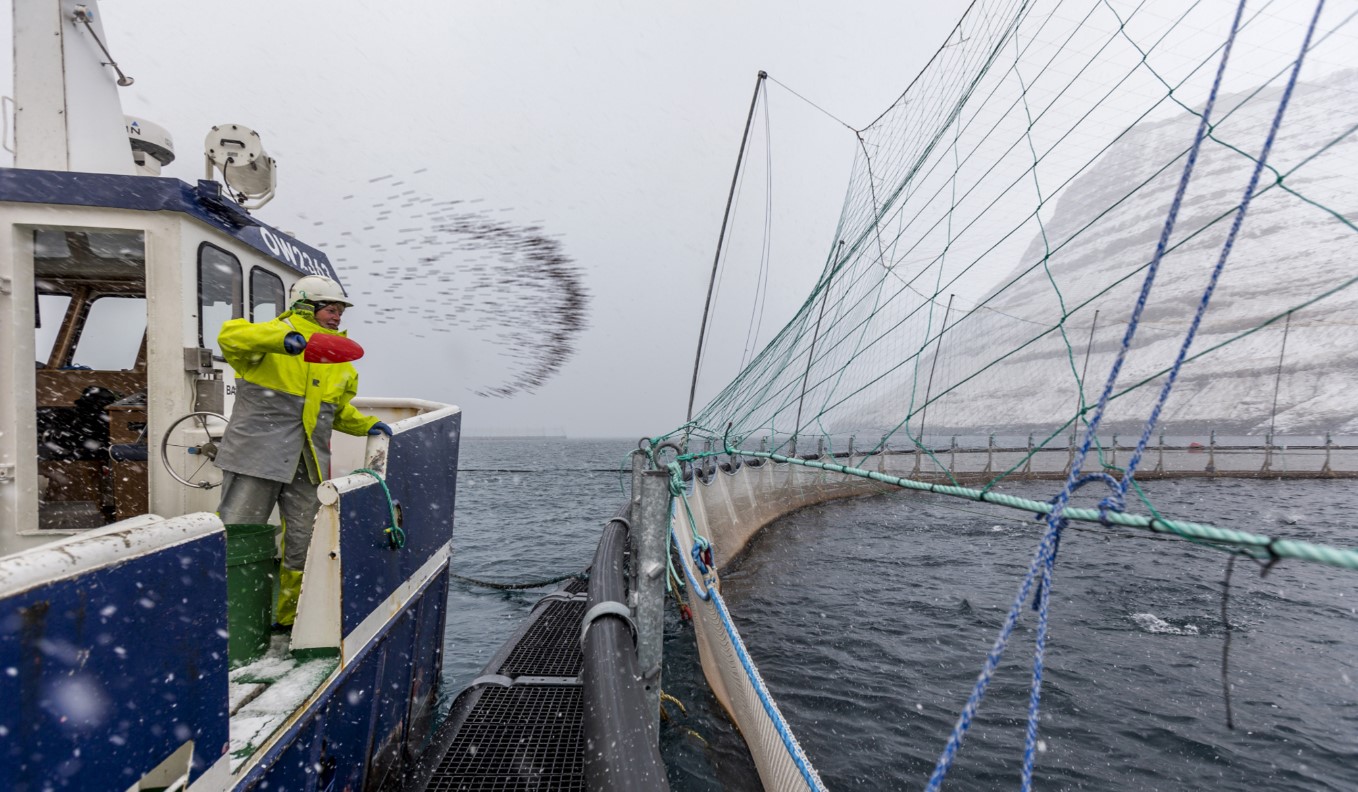Russian rubles in the Faroe Islands’ economy
People on the Faroe Islands are holding their breath these days. At least those working in the pelagic fishing industry. So far this year their export to Russia has been worth 800 million Danish kroner (€107m). Now it might all end, as the Russian fisheries authority has recommended an import ban on Faroese fish products.
Meanwhile, the Faroe Islands are deciding whether or not to renegotiate a fisheries agreement with Russia.
Reality has set in on the Faroe Islands. While the industry and much of the political system were calling for a statement from the Faroese government on whether they would renegotiate a fishing agreement with Russia, there was a very clear message from the Russian side:
"The Federal Agency for Fishery has presented a proposal to the Russian government to impose a ban on the import of fish products from the Faroe Islands," the message from Rosrybolovstvo, the fisheries agency, stated.
The Faroes are now considering this statement. Because what does it mean? How should it be interpreted?
Wave goodbye to several hundreds of millions
In concrete terms, this is saying goodbye to a market of 143 million people. Exports to Russia represent around ten per cent of the Faroese export market. 800 million Danish kroner (€107m) so far this year – nearly half of the total Faroese export of pelagic fish products in the same period.
But how real is the Russian threat right now?
“I reckon the decision has already been made and that this will become a reality,” Flemming Rose, editor-in-chief at Frihedsbrevet in Danmark and former Russia correspondent for Berlingske Tidende, tells Frihetsbrevet in the Faroese and expands:
“It has already been presented as a proposal to the government from a public body. You do not normally do that without the case having been decided for those it concerns.”
His comments are supported by what the Russian ambassador to Denmark, Vladimir Barbin, told Frihetsbrevet in August in connection with the actions taken by the Faroese government against Russian ships.
“The Faroe Islands are now moving away from developing mutually beneficial cooperation with Russia. This new situation might demand a reaction from Russia. This is both a lesson and a new reality. Russia must therefore re-evaluate its trust in the Faores as a fishing industry partner,” said the Russian ambassador.
Remarkable timing
The final and official Russian withdrawal has not yet been announced, but the recommendation has made many Faroese worried. Because it is reasonable to interpret the Russian recommendations of 23 October as a bad sign for the decision that must be made soon: should the fishing agreement between the Faroe Islands and Russia be extended or abandoned? These negotiations usually start in November – the recommendation from Russia came in late October.

Sjúrður Skaale, Faroese member of the Danish parliament. Photo Johannes Jansson/Norden.org
In an interview with the Danish Politiken newspaper, Sjúrður Skaale, a Faroese member of the Danish parliament, said it was “remarkable” that the import stop was announced right now.
Heini í Skorini, associate professor in international politics at the University of the Faroe Islands, Fróðskaparsetur Føroya, also finds the timing significant.
“The timing is interesting as this could be interpreted as Russian pressure, that Russia is flexing her muscles. The fishing agreement runs back to 1977 so the question is whether decades of cooperation on fishing has come to an end or not,” Heini í Skorini was quoted as saying on the Danish Broadcasting Corporation website.
This is where it is important to remain cautious because export and the fishing agreement are two separate things – and yet:
“It is not unfeasible that Russia would impose an import ban if the Faroese parliament decides not to enter into negotiations on an extension to the fishing agreement. And if the was to be extended, this would not happen. In that case, it is remarkable that this happens right now,” Skaale told Politiken.
Nearly 50 years of cooperation with Russia
So this is where the Faroese government is at right now. A threatened import ban and an undecided situation about the renewal of a nearly 50-year-old cooperation agreement with Russia.
The export part of the Faroe Islands’ relationship with Russia is easy to understand. It became particularly prominent when the EU imposed sanctions on the Faroe Islands in 2013 in connection with a dispute over quotas in the Atlantic.
Russia became the answer to who the Faroes would sell their fish to, and a pelagic fairytale began for the islands, which went from exporting for less than half a billion Danish kroner (€67m) to more than two billion (€268m) per year at its peak.

Bakkafrost is the leading producer of salmon in the Faroe Islands. Photo: Bakkafrost
But then came the war in Ukraine and Bakkafrost, the largest of three salmon farms in the Faroes, was one of several companies that stopped selling salmon to Russia.
“We simply feel that our values require us to stop the supply of fish to Russia for the moment,” Regin Jacobsen, the Bakkafrost CEO, told the Fishfarmingexpert magazine back in March 2022.
“For the past 15 years, we have been exporting salmon to Russia, and 10 to 15 per cent of our turnover has been from exports to Russia – at a value of around 600 million kroner a year (€80.4m). We had a very good relationship with our customers there.”
We are talking about a lot of money, in other words – an annual total of 2.6 billion kroner (€348m) at its peak. Now that is down to one billion kroner.

Feeding time for the salmon. Photo: Bakkafrost
The fishing agreement with Russia is a bit harder to translate into kroner and ører. It is a kind of barter trade where Faroese trawlers have primarily been able to fish for cod in the Barents Sea while Russian fishermen can catch blue whiting in Faroese seas.
A total of four Faroese shipping companies have had fishing quotas in the Barents Sea while around 30 Russian ships have been able to fish in Faroese waters as part of the agreement.
In the autumn of 2022, the then-government calculated that the agreement with Russia broke even – meaning the Faroe Islands received as much on one end as they lost on the other. Other economists have said the agreement is worth 200 million kroner (€27.8m).
The agreement will be renewed
The current Faroese governing coalition is made up of the Social Democratic Party, the Republic and Progress. A year ago, they were railing against cooperation with Russia. The election campaign was underway, and they were aiming for victory. They secured it in December 2022, but now reality has caught up with them.
This means there is a lot pointing to a renewed fishing agreement with Russia will be renewed. The coalition partners no longer say what they said in November 2022 because it does not reveal much about the issue. The main reason is probably that they are struggling to find a majority that will support an end to the fishing agreement with Russia.
This is something that has been repeated many times by political commentator and journalist Árni Gregersen both in the national broadcaster Kringvarp Føroya and in Danish media.
“If you ask me, then yes – I believe this will end up with an extension. There is a parliamentary majority for it. The opposition supports extending the agreement. Both the Union Party and the People’s Party have said this to Politiken and elsewhere.”
The question is if he is right, what will happen to the recommended import ban on Faroese fishing products in Russia? In the Faroe Islands, people are waiting for the answer to that question with bated breath, while people are also waiting to see whether the Faroes will choose to enter into new negotiations with Russia on an extension to the historic fishing agreement.
- At a crossroads
-
Russian ships in Faroese harbours have been an everyday occurrence in the Faroe Islands for decades, but the historic cooperation with Russia is at a crossroads.
- Update
-
Today, 8 December, the Ministry of Fisheries has entered into an agreement with Russia on a new fisheries agreement for next year. This means that after the New Year, Faroese and Russian fishing vessels can continue to enjoy each other's fish stocks, writes DR.dk.
The fisheries agreement between the Faroe Islands and Russia has existed since 1977. It gives Faroese shipping companies access to fish for cod in the Barents Sea, in exchange for Russian ships being able to fish blue whiting in Faroese waters.
 Follow us on Facebook
Follow us on Facebook
